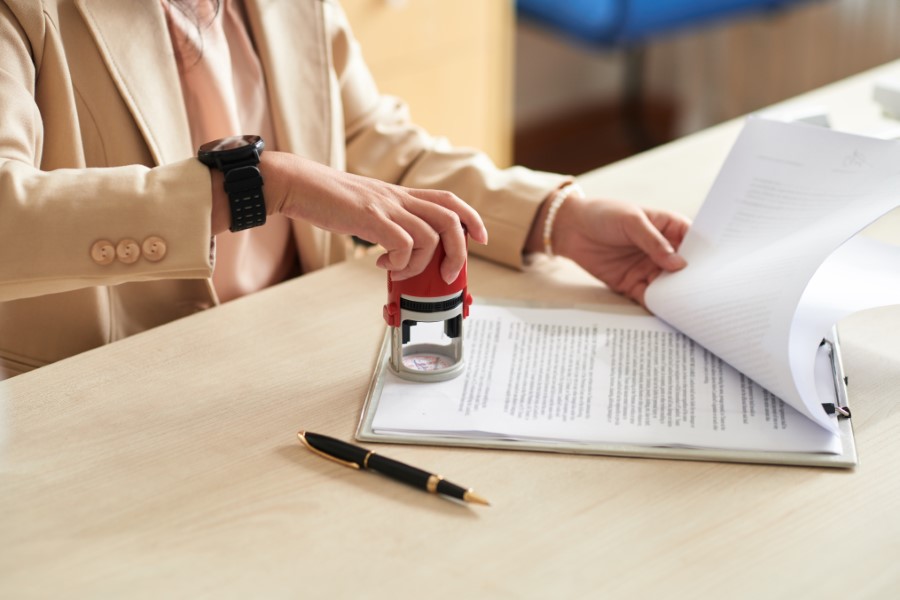
Introduction to Notary Public:
A notary public verifies the genuine and voluntary signing of one or more documents by one or more individuals. The notary confirms the identities of these individuals. When a notary notarizes documents in Canada, they match the signer’s signature with their current legal signature to ensure identity.
Processes for Document Verification:
Personal Information: The notary usually requests identification from the signer(s) to verify their identity. This request typically involves a photo ID, but it could also entail another legally accepted form of identity proof, such as a Canadian passport. The notary may record this information in the notarization itself or document it separately, making it visible to interested parties.
Attesting the Documents:
Signers must use their full legal names, not aliases or pseudonyms. Once the notary confirms this, they return the documents to the signers for review before signing. This step ensures that there are no surprises concerning the content, location, or other significant aspects of the signing process. The notary should explain these details. If you want to ensure that the documents accurately reflect the agreed-upon terms before signing, you can request to see a draft first.
Affixing the Notary’s Stamp/Seal:
The final step involves the notary affixing their seal to the documents. The notary uses an embosser to create an impression of their unique identifying mark on the document. This mark links the document with the specific notary public, preventing confusion when presenting the document in another jurisdiction at a later date.
Recognizing a Notarized Document:
Recognizing a document authenticated by a notary public can be important, especially in cases of remote authentication. One way to identify such a document is by checking for the presence of an embossed seal, indicating that the document has been attested by an authorized individual. Additional wording or statements may also accompany the signature(s) to confirm verification. It’s crucial to ensure that a licensed Notary Public or Commissioner for Oaths notarizes your documents.
Witness Signature:
If necessary, witnesses will physically sign the document copy. These witnesses could include the notary public themselves, a co-signer of one of the documents, or other individuals summoned to verify the agreement of both parties before signing.
Remote Notarization – How to Remote Notarize a Document: Fortunately, you can have a professional Canadian notary authenticate your documents without leaving your home. Online notarization services, such as All-Canada Notary, enable individuals across the country to certify their documents at any time using internet access and electronic signature technology. This process eliminates the need to physically visit a location and allows for remote notarization from the comfort of your home.
In the world of checking international papers, two main methods [...]
Document authentication is a critical process for ensuring the validity and legality of various documents.
A Statutory Declaration in Lieu of Guarantor is a vital [...]
An apostille stamp is a specialized certificate that serves as an internationally recognized method of authenticating official documents for use in foreign countries.




